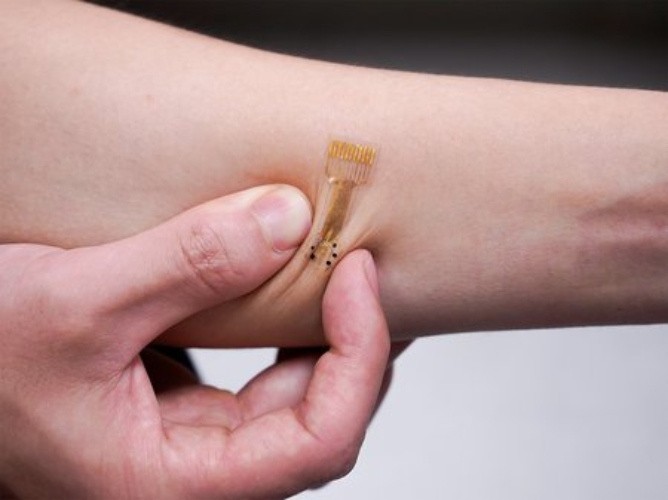Smart bandages are poised to change the way chronic wounds are treated. Developed by researchers at Caltech, these innovative bandages incorporate electronics and medication to create a wound dressing that is more effective and less expensive than traditional bandages.
They can monitor wound conditions in real-time and deliver medication or electrical stimulation to promote faster healing, making them an exciting new tool, according to a press release.

Smart Bandage for Chronic Wounds
According to Wei Gao, assistant professor of medical engineering at Caltech, chronic wounds caused by diabetes and burns often last a long time and cause significant issues for the patient.
With a demand for technology that can facilitate recovery, Gao and his team have developed these smart bandages to address this problem.
Smart bandages differ from traditional bandages in that they contain embedded electronics and medication within a flexible and stretchy polymer.
This technology allows them to detect molecules like uric acid or lactate and conditions like pH level or temperature in the wound that may be indicative of inflammation or bacterial infection. Based on this information, the smart bandage can respond in one of three ways.
The first response is to transmit the gathered data wirelessly to a nearby computer, tablet, or smartphone for review by the patient or a medical professional.
The second response is to deliver an antibiotic or other medication stored within the bandage directly to the wound site to treat the inflammation and infection. The third response is to apply a low-level electrical field to the wound to stimulate tissue growth resulting in faster healing.
Real-time Updates on Wound Condition
In laboratory settings using animal models, smart bandages have shown great promise in providing real-time updates about wound conditions and the animals' metabolic states to researchers, as well as speed healing of chronically infected wounds similar to those found in humans.
However, the research is still in its early stages, and more research is needed to improve the technology and test it on human patients.
Chronic wounds are a significant issue for patients and healthcare systems alike. In the United States alone, they represent a $25 billion financial burden each year.
Smart bandages offer a potential solution to this problem. By monitoring wound conditions, delivering medication, and promoting faster healing, they could make treatment easier, more effective, and less expensive for patients with chronic wounds.
While the promise of this technology is clear, it's important to note that more research is needed. The researchers are collaborating with the Keck School of Medicine of USC to further develop the bandage technology and test it on human patients.
The wound parameters and microenvironment may vary from site to site, so the device's stability needs to be increased and tested on larger chronic wounds.
In sum, smart bandages have the potential to revolutionize wound care. They offer hope to those who suffer from debilitating wounds and could help healthcare systems save money in the process.
Although more research is needed, the promise of this technology is clear, and it represents a significant advancement in wound care.
Related Article : Caltech Researchers are Creating a Huge Satellite That Sends Solar Power Back to Earth


![Apple Watch Series 10 [GPS 42mm]](https://d.techtimes.com/en/full/453899/apple-watch-series-10-gps-42mm.jpg?w=184&h=103&f=9fb3c2ea2db928c663d1d2eadbcb3e52)


